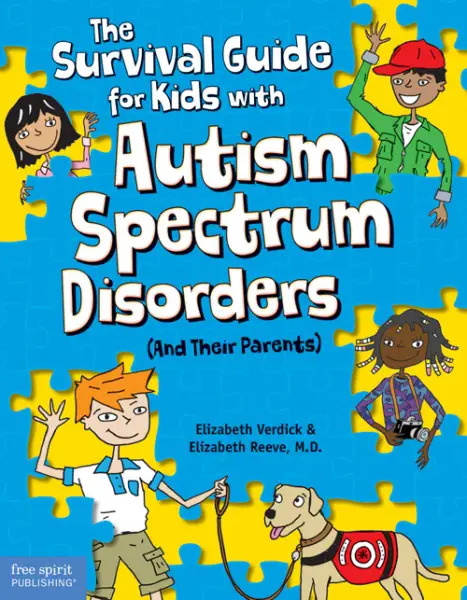Sharing a diagnosis with your child is one of the scariest things a special needs parent faces—and all sorts of questions arise. Where? When? How? Here’s how to get the conversation started, and remain positive in the process.

It’s not an easy decision to tell your child about the diagnosis. So many questions crop up… How do I tell him? What are the “right” words? Will she understand? Is there a certain age kids should be told? Will telling my child affect his confidence and self-esteem? Where should the conversation take place—at home? During therapy? At the doctor’s office? What if the conversation doesn’t go well—then what?
There is no tried-and-true way to tell your child about the diagnosis, but you can do several things to make the conversation go more smoothly. First and foremost, know that it’s likely that your child already has an idea that he or she is “different” in some way. The news may not be as shocking as you think. Kids with autism spectrum disorders realize they struggle in certain areas, but they don’t know why. They may think, “I do everything wrong” or “It’s all my fault.” They may wonder why they’re in a special education program or why they see doctors and therapists a lot more often than other kids do. When you talk to your son or daughter about autism or Asperger’s syndrome, it’s an opportunity for you to give your child not only the reasons but also reassurance. Children need to know that having the condition isn’t their fault.
The most important thing you can do is to keep the conversation positive. Wait until you yourself are at a point of acceptance. If you’re not sure the diagnosis is correct or if you’re feeling depressed, angry, or anxious, the timing isn’t yet right. Your child will most likely be aware of your confusion and sadness. He or she may return to thinking, “I do everything wrong” or “It’s all my fault.”
How do you keep the conversation positive? By making it clear that you’re there to answer questions, to offer support, and to always be a source of unconditional love. Point out your child’s many strengths, rather than focusing on weaknesses. Show empathy. And remember to tell your child, “I’m so proud of you.”
Tips to Start the Conversation and Keep it Going
1. Look for signs of readiness. Is your child asking questions such as, “Why do I have to go to therapy?” or “How come other kids aren’t like me?” Have you heard your child say something like, “I’m so stupid!” or “I can’t do things right”? These are signals that your child already senses a difference.
2. Choose a good time. You may want to wait until your home is quiet and your child is calm. You could talk during a weekend, when after-school activities and homework aren’t a pressing issue. Don’t have the conversation on a “bad day”—for example, after your child has had an outburst or a meltdown, scored poorly on a test, or gotten into an argument with a friend. Pick a time when all is (relatively) well.
3. Have a plan in place. Decide ahead of time who will do the telling. Will it be you? Your spouse or partner? Do you want other trusted people on hand, such as your child’s doctor or therapist, or special family members like grandparents and older siblings? Think about who your child is most comfortable around and what role others might play in the discussion.
4. Make the conversation age-appropriate. You can keep things simple for younger kids or go more in-depth for older ones. Use The Survival Guide as needed; read a chapter or two aloud, or show your child that the book is a tool for understanding when he or she is ready to learn more.
5. Be conscious of how your child responds. If your child shows signs of distress, end the conversation. Let your child know you can talk later, and then give him or her some space and private time. Open the door to questions when your child feels ready.
6. Know the facts. Autism spectrum disorders are considered medical conditions. Kids who have ASD need help, guidance, and support. Some parents make the mistake of believing that because a diagnosis will lead to a label, that label will then hold their child back in school, in social situations, and throughout life. But failing to acknowledge the condition doesn’t change the reality of it. Other parents attempt to soften the truth by telling their child he or she has a learning disorder or a developmental delay. This terminology may give children the impression that they’ll outgrow the problem or “get better” if they “do things right.” Avoiding the diagnosis or giving it a different name only postpones the process of getting kids the help they need and deserve.
Your child has a better chance of succeeding in life if you face the diagnosis with an open mind, an open heart, and firmer footing on the path ahead.























